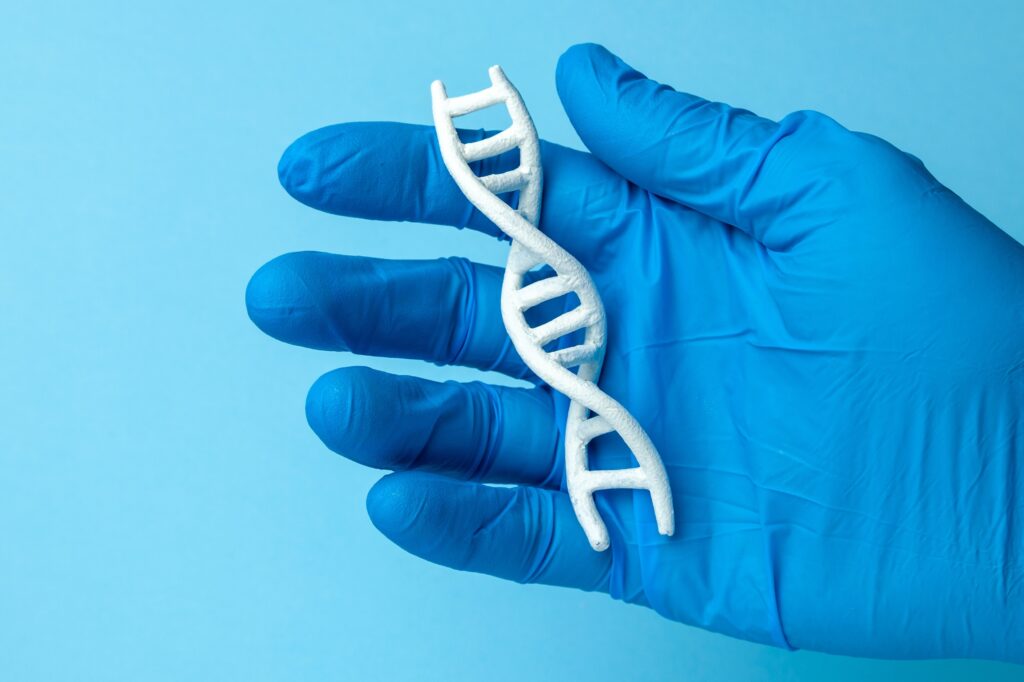
123rf
Have you ever envied that friend who can polish off a whole pizza, follow it up with a giant slice of chocolate cake, and still fit into jeans they wore in high school? While it might seem like they’ve hit the genetic jackpot, there’s actually a mix of factors at play. From metabolic mysteries to lifestyle choices, let’s dive into the 13 fascinating reasons why some people can eat to their heart’s content without gaining an ounce.
1. Genetics Play a Big Role

123rf
Genetics significantly influence an individual’s propensity to maintain a stable weight. Certain genes can affect metabolism, making it easier for some people to burn calories efficiently. Additionally, genetic variations can impact how the body stores fat and responds to physical activity. People with specific genetic markers may experience less hunger and greater satiety, aiding in weight management.
2. They Have More Muscle Mass

123rf
Having more muscle mass plays a crucial role in preventing weight gain. Muscles are metabolically active tissues that burn more calories at rest compared to fat. This higher resting metabolic rate means that individuals with greater muscle mass can consume more calories without gaining weight. Additionally, muscle mass improves insulin sensitivity, helping the body to use glucose more effectively and preventing fat storage. Regular strength training not only builds muscle but also boosts overall metabolism. People with higher muscle mass also tend to engage in more physical activity, further enhancing calorie expenditure.
3. Differences in Hormone Levels

123rf
Differences in hormone levels can significantly impact an individual’s ability to avoid weight gain. Hormones like leptin and ghrelin regulate hunger and satiety, influencing food intake. People with balanced levels of these hormones may feel full sooner and stay satisfied longer, reducing overeating. Additionally, hormones such as insulin and cortisol play roles in fat storage and metabolism, where optimal levels help prevent excess fat accumulation.
4. A Highly Active Lifestyle

123rf
It’s not always what you eat but what you do. People who are constantly on the move burn more calories. Whether it’s regular trips to the gym, cycling to work, or just being naturally fidgety, active lifestyles help keep the pounds off. Active individuals often have better muscle mass, which boosts metabolism and further aids in burning calories. Moreover, an active lifestyle can help regulate appetite and improve overall energy balance.
5. They Don’t Absorb All the Calories They Eat

123rf
Some people don’t absorb all the calories they eat, which can help them avoid weight gain. This reduced absorption can be due to differences in digestion and gut microbiota. When fewer calories are absorbed, the body has less excess energy to store as fat. Additionally, certain foods, like those high in fiber, can pass through the digestive system with fewer calories being absorbed.
6. Frequent Small Meals

123rf
Eating patterns play a crucial role. Those who munch on smaller meals throughout the day might have better control over their metabolism and less dramatic insulin spikes, which helps manage weight. Smaller, regular meals can help keep metabolism active throughout the day, aiding in continuous calorie burning. Also, it can help regulate blood sugar levels, preventing spikes and crashes that can lead to cravings. Consistently eating small meals can also provide a steady stream of energy, promoting better overall physical activity.
7. High Metabolic Rate

123rf
Some people have a naturally high basal metabolic rate (BMR). Individuals with a faster metabolism burn more calories at rest and during activities, making it easier to maintain a healthy weight. This increased calorie expenditure helps prevent excess energy from being stored as fat. Additionally, a high metabolic rate can enhance the efficiency of nutrient utilization, supporting overall health and energy levels. Factors such as genetics, muscle mass, and physical activity levels contribute to metabolic rate variations.
8. Efficient Fat Oxidation

123rf
The ability to burn fat effectively is another key factor. Some people have bodies that preferentially use fat as an energy source, which can prevent weight gain even when their diet is rich in fats. They can burn more fat during both rest and physical activity. This process helps in managing weight by utilizing fat stores instead of relying solely on carbohydrates for energy. Factors like regular exercise, a balanced diet, and genetics can enhance fat oxidation.
9. Hydration Habits

123rf
Hydration habits play a significant role in maintaining a healthy weight. Drinking adequate water can boost metabolism, helping the body burn more calories. Proper hydration also aids in digestion and prevents water retention, which can contribute to a healthier weight. Additionally, drinking water before meals can promote a sense of fullness, reducing overall calorie intake. Staying hydrated can also improve physical performance, encouraging more consistent physical activity.
10. Mindful Eating

123rf
Being mindful about what and when you eat can impact weight significantly. By paying close attention to hunger and fullness cues, individuals can avoid overeating and better regulate their calorie intake. This practice involves savoring each bite, which enhances the eating experience and can lead to greater satisfaction with smaller portions. Mindful eating also encourages choosing nutrient-dense foods over empty-calorie options, supporting overall health and weight management. Additionally, it helps reduce emotional eating by fostering a more conscious relationship with food.
11. They Burn Calories Through Non-Exercise Activity Thermogenesis (NEAT)

123rf
NEAT refers to the calories you burn through daily activities other than formal exercise, like walking to the printer at work or pacing while talking on the phone. These activities can significantly increase daily calorie expenditure, helping to prevent weight gain. Individuals who are naturally more active throughout the day tend to have higher NEAT levels. Simple habits like taking the stairs, standing while working, or frequently moving around can contribute to this calorie burn.
12. Youthful Metabolic Rate

123rf
A youthful metabolic rate significantly contributes to preventing weight gain. Younger individuals often have faster metabolisms, which means they burn calories more efficiently. This higher metabolic rate is partly due to greater muscle mass and higher energy levels typically found in youth. As a result, they can consume more calories without gaining weight compared to older adults. In addition, youthful bodies are often more active, naturally incorporating more physical movement into daily routines.
13. Psychological Factors

123rf
Stress management and emotional well-being can significantly impact eating behaviors and weight management. Individuals with a positive body image and healthy self-esteem are more likely to engage in behaviors that support weight maintenance. Conversely, chronic stress and emotional distress can lead to overeating or unhealthy eating habits. Mindfulness and mental health practices can help individuals develop a balanced relationship with food.
Eat More, Weigh Less?

123rf
Understanding these factors sheds light on the complex interplay of genetics, lifestyle, and biological mechanisms that determine weight gain. While some might have more forgiving metabolisms, a balanced diet, and regular physical activity are key for everyone in maintaining a healthy weight. So, before you envy your friend’s carefree eating habits, remember there’s a lot going on behind the scenes!
Read More
From Cold Cures to Detox Diets: 15 Health Myths Unmasked
Stay Young Forever? 14 Non-Exercise Tips That Actually Work

Leave a Reply